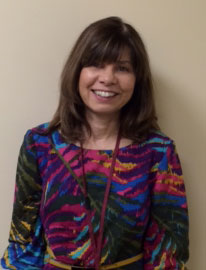Editorial
Do Students Still Need to be
Proficient in Gathering Data?
Aurora Denial, OD, FAAO
Recently a student assigned to my clinical site commented that retinoscopy and keratometry were useless techniques to master. I was appalled and asked the student to explain the statement. The student said that in previous clinical experiences an autorefractor/keratometer was utilized to obtain a starting point for refraction, and that in the future most potential work environments would also use an autorefractor/keratometer. Although still appalled that a student would question the importance of mastering techniques foundational to our profession, I wondered what it might tell us about preparing our students to practice in today’s world.
The Power of Technology
Over the past several decades, there have been significant advances in the sophistication and quantity of technology available to optometrists. New instruments and technology are sought after to provide better patient care, increase productivity and provide a state-of-the-art experience for patients. According to a survey conducted by Review of Optometry in 2014, the technologies most wanted and recently purchased by optometrists were: automated phoropter, optical coherence tomograph, electronic health records system, digital anterior and fundus cameras, tear film osmolality test, corneal topographer, pachymeter, wide-field scanning laser ophthalmoscope, and patient recall system.1 Most of these instruments allow for data to be easily and accurately gathered by technicians. The ancillary use of technicians in optometry is not new. However, the combined use of technology and technicians frees the optometrist from spending valuable time gathering data. The practitioner can utilize chair time to refine data and talk with patients.
In a more futuristic scenario, patients may be able to gather data on their own. There are currently 50,000 medical apps that allow patients to do so.2 In the novel Cell, written by physician and best-selling author Robin Cook, a phone app, “iDoc,” is poised to replace the primary care physician.2 In 2014, Cook told a symposium that a virtual doctor can gather data and “sift through billions of studies and records to make a diagnosis and offer a solution.2 In optometry, we are seeing the availability of online eye examinations.
Should Data-Gathering No Longer Be the Primary Focus?
All optometric curricula include courses in clinical methods and techniques. These courses teach skills that allow future optometrists to gather data. The courses usually reflect a significant amount of credit hours and time commitment from students. Most courses have a clinical skills exam or proficiency that insures that students are able to gather data in an accurate and efficient manner. Currently, this is important because students have to pass the entry-level competency exams administered by the National Board of Examiners in Optometry (NBEO) to qualify for licensure. However, if academic curricula changed, would the NBEO follow? Additionally, the argument could be made that certain populations and environments will always demand the need for proficiency in specific data-gathering techniques.
Is data-gathering by the optometrist foundational to our profession and needed to accurately and reliably assess the data? How proficient do students have to be in data-gathering when technology and instrumentation that allow for efficient data collection may be readily available? Do they still need to be proficient in using the binocular indirect ophthalmoscope when they can obtain a wide-field scanning laser ophthalmoscope image? Do students still need to be proficient in retinoscopy? In 2011, ASCO reported that the schools and colleges of optometry “shall ensure that before graduation each student will have demonstrated all the skills required for the diagnosis, triage, management and/or treatment of common visual conditions.”3 Can this goal be met by focusing on the analysis of data along with the diagnosis and management of conditions and leave the data-gathering to instruments, technicians and technology? Most first- and second-year optometry program courses focus on technique and data-gathering, but do we need to change the culture of learning in optometry school and shift our focus away from data-gathering?
I often tell my students, “Throughout your careers you will be in awe of new instrumentation, medications and technology, but in the end your mind and ability to think will be the best skill you can bring to your patients.” My message reflects the perception of an optometrist who relies on thinking skills, such as analyzing data, interpreting information, forming conclusions and implementing plans, rather than an optometrist who focuses on data-gathering. I have to ask myself: Why was I initially distraught by the student who discounted retinoscopy as an essential technique? As educators, should we reflect and consider that we are subconsciously hanging on to the role of the optometrist of the past instead of looking into the future?
References
- Murphy J. Technology survey: what you have your eyes on [Internet]. Newtown Square, PA: Review of Optometry; c2017. Available from: https://www.reviewofoptometry.com/article/technology-survey-what-you-have-your-eyes-on.
- Virtual doctor is coming, says writer Robin Cook [Internet]. Petaling Jaya, Malaysia: The Star Online; c1995-2017 [cited 2017 Jan 30]. Available from: https://www.thestar.com.my/lifestyle/health/2014/02/21/virtual-doctor-is-coming-says-physicianwriter-robin-cook/.
- Smythe J, Daum K. Attributes of students graduating from schools and colleges of optometry. Optometric Education. 2011 Fall;37(1):5-8.





